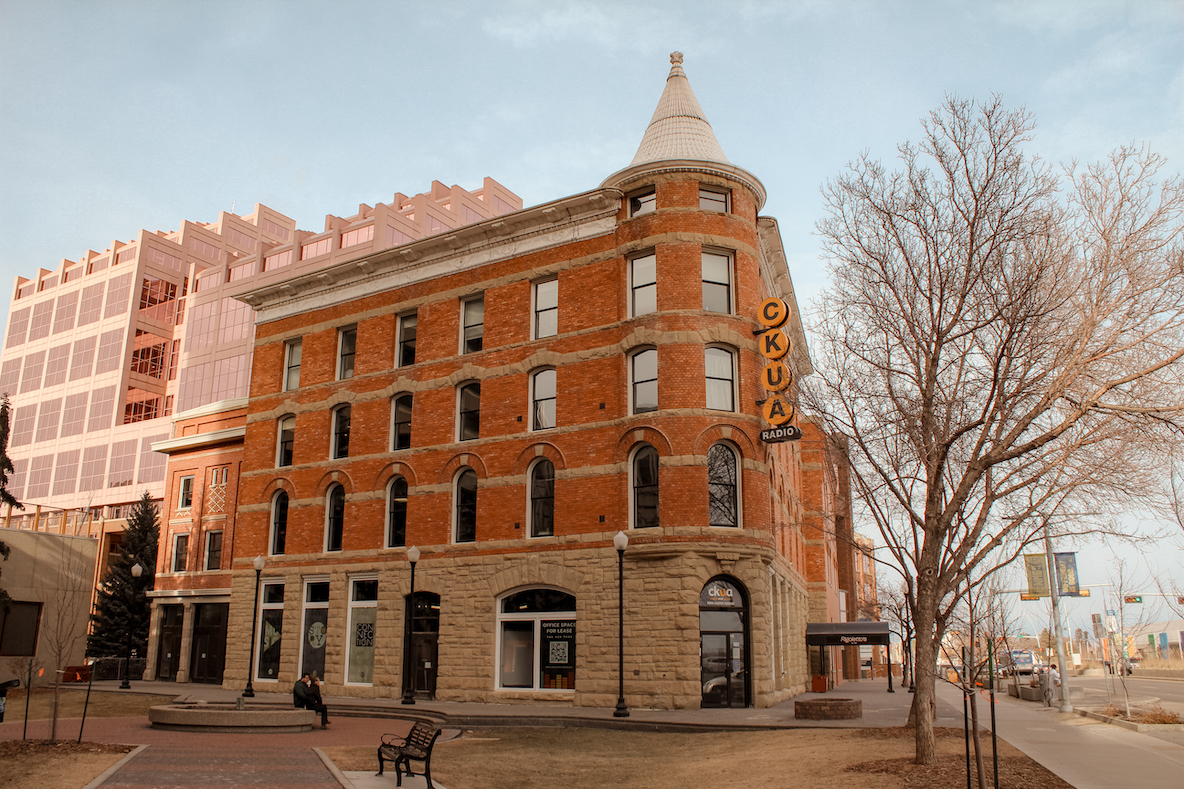When I call CEO Marc Carnes for an update on CKUA Radio, I catch him in a brief pause as he and his staff prep for one of Alberta’s most-beloved music festivals.
“It’s the calm before the Folk Fest storm,” he says. “But everyone’s still buzzing around like busy little bees.”
While it may be one of the biggest, the Edmonton Folk Festival is just one of over 50 fests featuring hundreds of artists CKUA will highlight across Alberta this year. Carnes says it’s very common for listeners to travel far and wide to fests big and small to see in person artists they first heard on CKUA airwaves, making the station a critical — and unique — part of Alberta’s festival ecosystem.
“There is no other provincial radio station, and our listeners spend millions of dollars in tourism and entertainment money that goes into the pockets of artists and into local venues and communities. We’re giving a spotlight to artists and organizations that wouldn’t get this anywhere else, so there’s actually a real return to our province as well. And I think it’s really important that the government knows that part of the story.”
The story the government knows is that CKUA needs money to remain operational. And listeners have been telling that story ever since 6,778 of them raised $1.8 million over 13 days back in April (as of writing, more donations have brought the current total to $2.2 million cash in hand). Carnes then went on air to thank listeners and ask them to “get out [their] pencils, pens and keyboards” to write letters to the federal government urging it to supply the remaining money CKUA needs to keep broadcasting. “CKUA is not looking for a hand-out — we are looking for fairness,” Carnes said back in May.
Back in 2012, CKUA undertook a capital campaign to rebuild its home, the historic Alberta Hotel. The City and Province contributed $5 million each, which was 10 times more than the Feds’ $500,000. This forced CKUA to take out a $6 million loan and carry its costs ever since, which it’s been able to do — until the pandemic. Since then, costs have inflated and some Alberta Hotel tenants have left, resulting in a “pretty quick bleed over the past 18 months.” Because the province does not service debt — in this case, debt the station took on to make up for the federal shortfall — the station, its listeners and the artists they support must fend for themselves.
